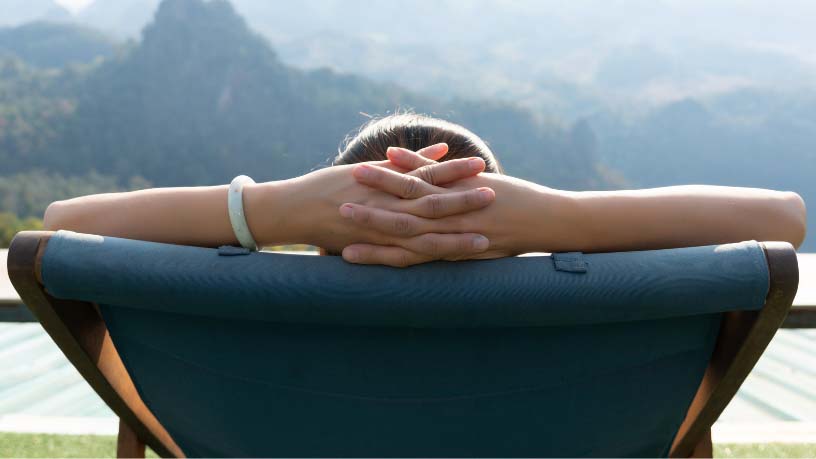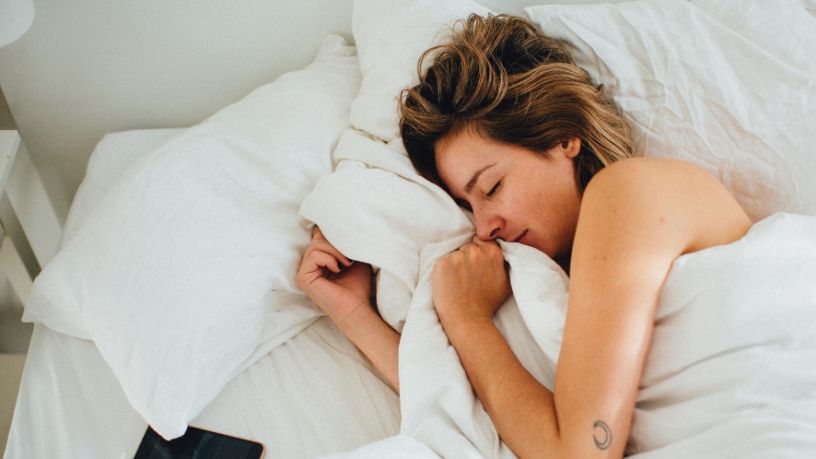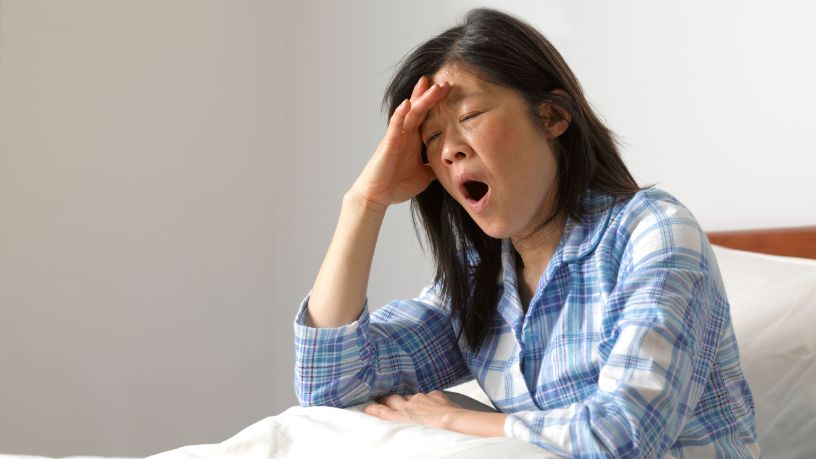Discover the difference between sleep and rest.
Key takeaways
Quality rest can help improve your health and wellbeing and improve your brain function.
You can make rest part of your daily life with a range of habits.
In a world that’s obsessed with being ‘on’ 24/7, rest and sleep are often treated as luxuries. But in reality, they’re far from it.
Rest and sleep are 2 distinct functions that work together to improve your health and wellbeing, helping you lead a happier, more meaningful life.
But what, exactly, is the difference between rest and sleep? And how can you make rest a part of your day?
Rest versus sleep
Rest is any activity that soothes, calms and regulates your nervous system, whether active or passive.
During rest, you can be present to whatever is emerging in the moment. This means you can rest while reading, walking, practising yoga or engaging in a restorative activity.
Sleep, on the other hand, is an immersive and complex process that is vital for the health of every tissue and system in the body. We know everyone needs sleep, but scientists are still trying to fully understand its exact biological purpose.
While sleep is a time to restore and reset, the mind and body become remarkably active.
Ideally, you should focus on rest and sleep equally so that the 2 operate in partnership as part of your self-care routine.
How do we rest?
Rest looks different for everyone. Ultimately, though, it’s not the activity that matters so much as how it impacts your nervous system.
You should aim to rest your nervous system as often as you can by reducing stimulants (like coffee, cigarettes and alcohol), screen time and stress throughout the day. You can also add rituals and habits to create more presence and harmony.
That might include:
- a conscious breath
- a momentary pause in an activity
- a long bath
- a slow walk
- listening to your favourite song
- mindful drawing.
Sometimes, people get stuck in the trap of associating rest with ‘numbing out’ or ‘switching off.’ However, it’s important to differentiate rest from activities that are reclined but still stimulating, like scrolling or streaming.
The benefits of rest
When you practise a gentle, guided meditation, your relaxation response is usually activated within 10 to 20 minutes.
This response is the opposite of stress, effectively switching off your ‘fight-or-flight’ mode (the biological response that leads to anxiety).
Getting yourself into a restful state can deeply engage your body’s ‘rest-and-digest’ function, which calms your body down.
This can help you:
- maintain your physical health
- promote wellbeing
- improve your brain’s function
- calm your nervous system.1
Balancing busyness with rest
If you want less stress in your life, you need to practice slowing down and resting more.
We all have busy lives, but to truly reduce overall stress, change is needed on a societal level.
‘Hustle culture’, the workplace obsession around how much we can get done in a day, all too often leads to burnout.
Ideally, practicing more rest and getting better sleep will help you overcome this, helping you chart a more nourishing, creative and connected way through the world.

At Bupa, trust is everything
Our health and wellbeing information is regularly reviewed and maintained by a team of healthcare experts, to ensure its relevancy and accuracy. Everyone's health journey is unique and health outcomes vary from person to person.
This content is not a replacement for personalised and specific medical, healthcare, or other professional advice. If you have concerns about your health, see your doctor or other health professional.
1Boynton, E. (2022). Taking breaks is good for your brain — here’s why. University of Washington Medicine.
You might also like...
How to sleep better
We all know that how well (and how much) you sleep can impact your health and wellbeing, so we’ve put together some tips to help you get a better night’s sleep.
Breaking the stress-sleep cycle
A good night’s sleep is one of the best ways to manage stress, but ironically, it’s incredibly difficult to drift off when you’re stressed.
Tips to help you fall asleep
Small changes to your evening routine could have you falling asleep faster and sleeping better.
Everything you need to know about sleep apnoea
Sleep apnoea is a common sleep disorder, though it is often under recognised and under diagnosed. Find out how it might affect you or your partner.





